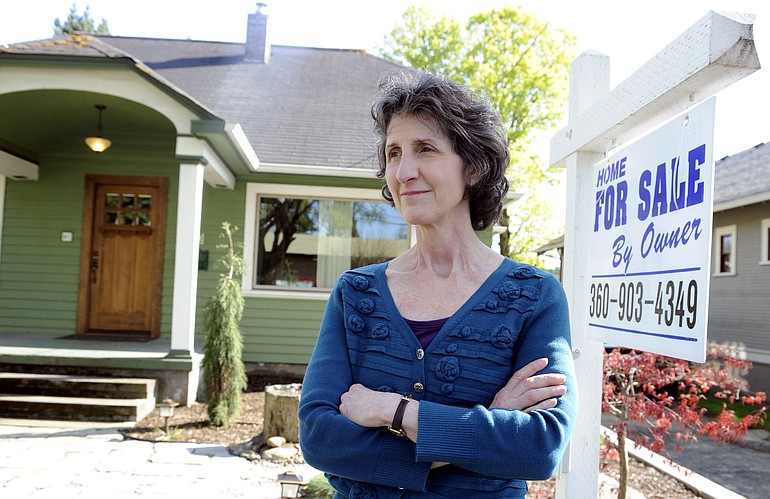Vancouver city leaders say they’re working hard to attract new businesses and help existing ones grow.
But the experience of one startup owner highlights just how challenging it can be to nurture growth in an era when cash-strapped businesses can’t afford to navigate a tangled web of codes and regulations. Following the rules can add tens of thousands of dollars to a simple project, said Dr. Diane Kaiser, who recently abandoned her attempt to launch a private psychology practice in a 1920s-era Craftsman-style house in downtown Vancouver. Kaiser gave up after she learned that complying with city requirements added $40,000 to the costs she anticipated.
That would have put her over the limit of her pre-approved $360,000 small-business loan. “I couldn’t afford it,” said Kaiser, who had thought the tidy bungalow would be a perfect environment to counsel her clients and break away from her 12-year affiliation with a large group of mental health professionals.
Kaiser had already told her clients and notified her employer, the Vancouver office of Western Psychological & Counseling Services, that May 31 would be her last day of work.
She was devastated, embarrassed and angry when she learned that she couldn’t afford the upgrades along with the asking price for the $340,000 house at 405 E. McLoughlin Blvd., she said.
“I thought they wanted new businesses in the city,” Kaiser wrote, in a follow-up email to the city’s community development department.
The house is part of a section of the Arnada neighborhood that was rezoned during the 1980s from residential to office development. That’s what Kaiser wanted to do with the McLoughlin bungalow, with its wood floors, a yard and a kitchen where she envisioned making cups of tea for her clients, she said.
“It’s lovely. It doesn’t feel like a corporate office,” said Kaiser, who submitted an application to convert the space in March and then waited three weeks for her hourlong “pre-application conference” with city staff.
She attended the meeting with Cory Stevens, her commercial real estate broker from Prudential Northwest Properties in Vancouver, meeting with representatives from the city’s fire, transportation, building, sewer and water departments.
Kaiser said Stevens summarized the staff’s findings at the close of the meeting.
“We shook hands and the only issue seemed to be finding an extra (street) parking space,” said Kaiser. Two weeks later, however, she learned that she would have to remove a retaining wall to widen the home’s narrow driveway and replace the home’s sewer line.
Although the sewer requirement was listed in the city’s 29-page pre-application report on Kaiser’s project, it’s not uncommon for new business owners to miss such details, said Laura Hudson, the city’s community development director.
“We give them a really complex report,” Hudson said.
She also said conferences with city planners can be confusing to business owners who may not be well versed in the nuances of building construction.
“Maybe we don’t do a good job of making sure you’re aware of what’s out there,” Hudson said. “And maybe it’s too much information. It’s very technical.”
Hudson said some business developers bring along hired consultants. Others bring a friend, family member or spouse to help them process the oral and written reports of department representatives.
Even if she had initially understood the full costs of preparing the house to operate as a business, however, Kaiser would have faced a dilemma familiar to many small business owners. Regulations that govern them can quickly become prohibitively expensive to those operating on tight budgets.
Jon Wagner, a senior planner with the city, said he wasn’t surprised by Kaiser’s reluctance to invest another $40,000 into her project.
He attended the pre-application conference in which little was said about the required sewer line replacement.
Hudson said Kaiser’s experience could prompt the city to provide more help with the lengthy reports that outline business development regulations — everything from transportation code to the rules that make buildings comply with the Americans with Disabilities Act.
“When there are so many regulations required, maybe we should be providing more help on our end to help them through the process,” she said.
She also noted that in today’s tightened business-lending environment, strict budgets rule most startups, leaving less capital to hire development consultants and scrape together the resources to bring an older home up to the city’s codes for business space.
And Hudson foresees more problems ahead.
“If we stay in this economy and things don’t pick up, there will be more people trying to make do with fixer-uppers,” she said. “I have a feeling we’ll have to communicate better so that they really understand what’s involved, and that’s our issue at this point.”



